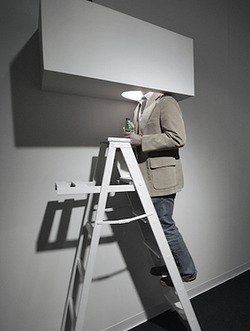Spring
dal 26/4/2013 al 4/8/2013
Segnalato da
Mihut Boscu Kafchin
Radu Comsa
Alice Mandelli
Kaori Miyayama
Cristian Boffelli
Soren Roi
Alessandro Roma
Moe Yoshida
Ryohei Usui
Jeni Spota
26/4/2013
Spring
Space, Lucie Fontaine's Tokyo satellite, Tokyo
The new satellite space will showcase, among other projects, 4 exhibitions, one each season, that will take place in the tatami rooms of a house located in the Shimokitazawa neighborhood of Tokyo. Spring includes contributions by scientists, artists, interventions by Tana Gallery Bookshel, and The John Riepenhoff Experience.

Lucie Fontaine and her employees are proud to present “Spring,” the first exhibition at 光泉 Space, Lucie Fontaine’s new satellite in Tokyo. While “光泉” indicates one possible Japanese translation of the name “Lucie Fontaine” (光 = hikari “light” and 泉 = izumi “fountain”), the word “space” addresses the following topics: space as a denomination for something that can be either public or private; space as understood in the field of science, which means the study of issues specifically related to space travel and space exploration; and space simply as a physical space devoted to art.
Traditionally, visual art in Japan was conceived for the house and specifically for a space called “tokonoma” [床の間]. Tokonoma refers to a niche, a built-in recessed space – located in the common room (tea or tatami room) of a Japanese traditional private residence – in which items for artistic appreciation are displayed. The items usually displayed in a tokonoma are either calligraphic or pictorial scrolls and an arrangement of flowers. The tokonoma and its contents are essential elements of traditional Japanese interior decoration. Within the Japanese symbolism, the tokonoma is considered a space that is internal to the house but at the same time a link to the exterior and to the universe. The display in the tokonoma needs to be rearranged every season, four times per year.
For these reasons the 2013 program at Lucie Fontaine’s satellite in Tokyo will showcase, among other projects, four exhibitions, one each season, that will take place in the tatami rooms of a house located in the Shimokitazawa [下北沢] neighborhood of Tokyo.
The title of the first exhibition is simply “Spring” and it will open on April 27 from 3 to 7 pm. According to the time preceding the advent of the Gregorian calendar, in Japan the new year used to start in the spring, and the season begins the fiscal and scholastic calendars to this day. The spring season is also dedicated to the contemplation of flowers.
Following these premises, “Spring” will include contributions by scientists Brent Buffington (space engineer at JPL-NASA American space agency), Adam Masters (plasma physicist at JAXA-Japanese space agency), and by artists Mihuț Boșcu Kafchin, Radu Comșa, Alice Mandelli, Kaori Miyayama and Cristian Boffelli, Soren Roi, Alessandro Roma, and Moe Yoshida. It also includes interventions by Tana Gallery Bookshelf with a show by Ryohei Usui and The John Riepenhoff Experience with a show by Jeni Spota.
Image: JRE - The John Riepenhoff Experience
April 27, 2013
H: 3 - 7 pm
At 4.30 pm presentation by Adam Masters
From 5.30 pm documentary screening
光泉 Space, Lucie Fontaine’s Tokyo satellite is located at 1-23-3 Kitazawa, Setagaya-ku, Tōkyō-to and is open by appointment only.



